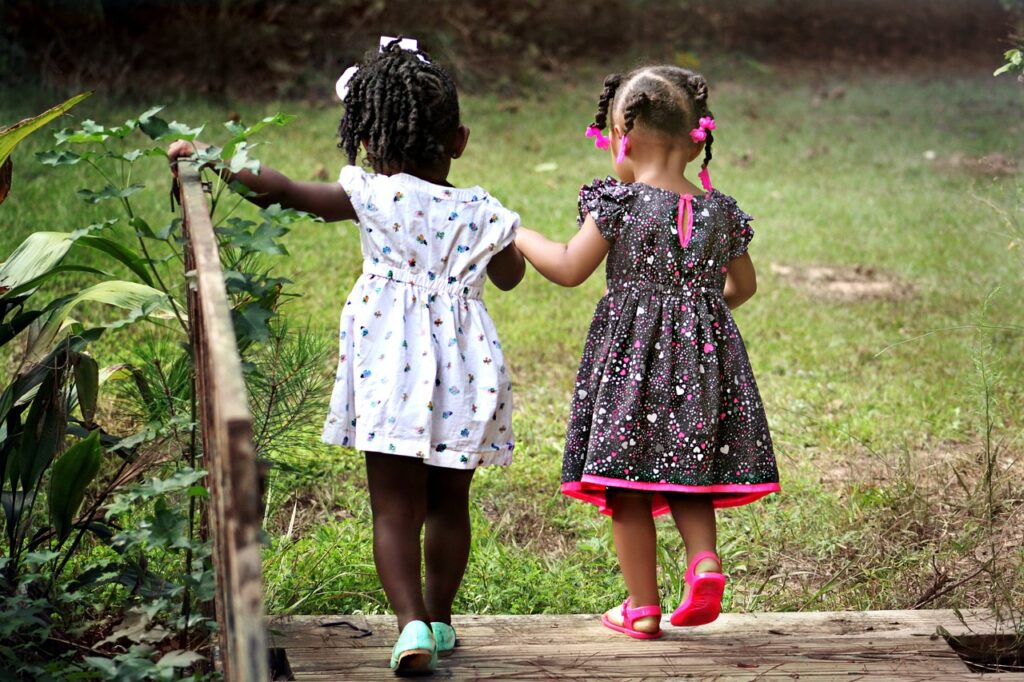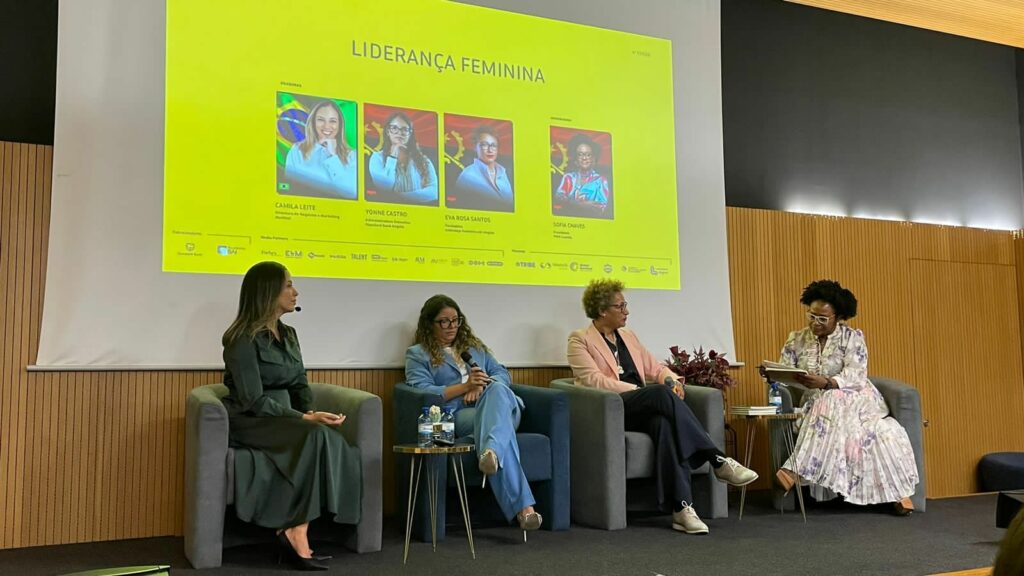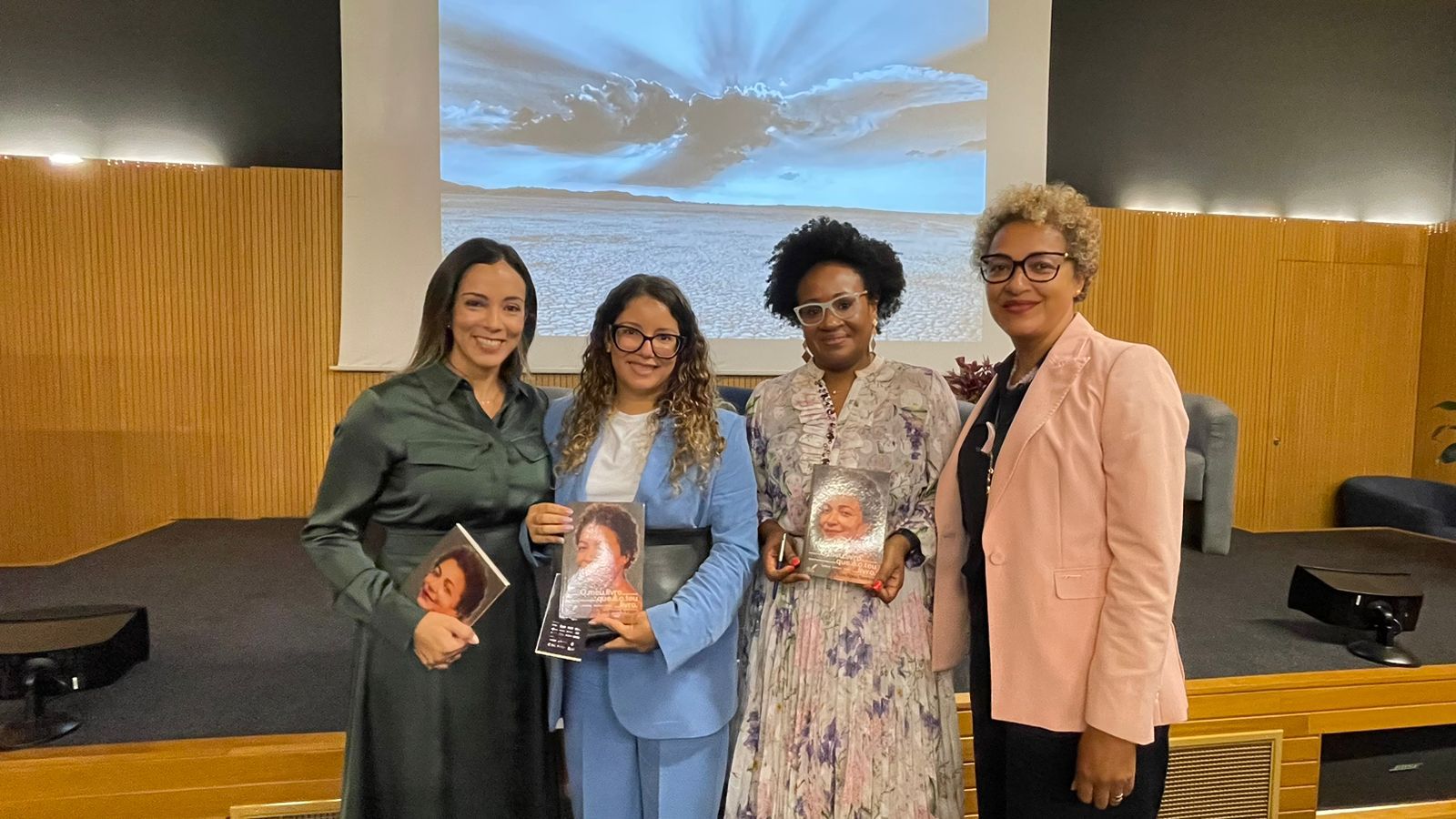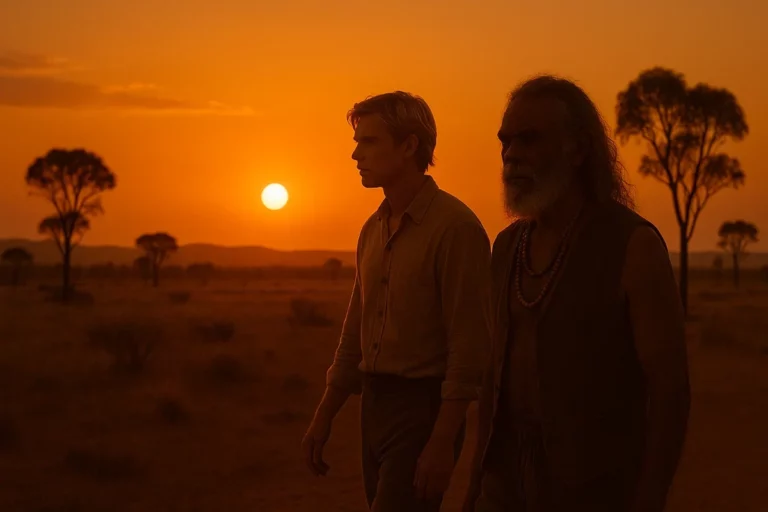All Hands on Deck – Everyone Has a Role to Play in Advancing Gender Equality
We frequently discuss female empowerment, but our actions often fail to align with this ideal. In this article, Eva Rosa Santos looks into what it required to achieve gender equality in our lifetime.

Have you ever experienced that anxious flutter in your gut? The exhilaration of accomplishing something, tempered by the bittersweet taste of uncertainty about your abilities? I have, and I still do. As emotional beings, our feelings can sometimes betray us, hindering our pursuit of aspirations. We possess intuition, often referred to as a “sixth sense,” which enables us to influence, effect change or navigate challenges.
Reality is demanding, relentless and it doesn’t pause for us to make informed decisions. It can thrust us into tricky, ambiguous situations that test our principles. Have you ever found yourself in such a situation, whether in your personal life or within your family? How did you manage it?
We frequently discuss female empowerment, but our actions often fail to align with this ideal. In this realm of “empowerment,” you’re encouraged to follow your instincts, but sooner or later, you’re expected to disregard them and make choices that may contradict your inner wisdom.
In this context, “female empowerment” may be nothing more than a facade, a way to project a positive image in photos. In reality, women in leadership positions often don’t enjoy true autonomy and decision-making freedom, for various reasons. Perhaps the primary reason is fear. Will she excel as a leader more than I do? This reveals the vulnerability and insecurity (which are perfectly normal) of the other person. However, these qualities are not always acknowledged, and that’s when challenges emerge.
If the system is tainted by corruption, the journey toward achieving “female empowerment” becomes significantly more difficult. Just take a look around to observe the actual efforts being made to attain genuine gender equality. In this endeavor, our sixth sense offers no guidance. However, if both men and women are committed to effecting change for a more equitable society, it is entirely possible.
The first step: Acknowledge the paramount significance of gender equality. Why should we, as individuals, be denied equal rights and responsibilities solely based on our gender? How can you contribute to this cause?
The second step: Recognize the collective benefits of unity and equality. What can you personally gain from this unity? Have you ever contemplated this, considering our individual authenticity and uniqueness?
The third step: Take action. What are you doing today to drive change? Without action, we’ll forever remain trapped in the realm of missed opportunities. I firmly believe that each of us possesses the “sixth sense” to anticipate situations and approach them differently. I like to believe that the journey toward change, while it may appear monumental, is attainable through the smallest of actions, like reading this article, sowing the seeds for personal reflection and contributions to this transformation.
I remain convinced that it’s a realistic and achievable goal, even when all indicators are flashing red and time is in short supply. I like to think that all of us share the desire to build a positive legacy for our families (I certainly do), our society, our communities and in that aspiration, each of us holds a vital role.
To you, the female leader, listen to your inner voice, assess your actions, reactions, decisions, successes, and setbacks. Learn from them and keep building. Embrace sisterhood in your daily life, both challenging and supporting fellow women, and participate in the re-education or education of men.
To you, the man, support, challenge and inspire women and men to reconsider the concepts and values associated with gender equity and equality, so that future endeavors are sustainable and prosperous for everyone. Discussions about equality, equity, and diversity should never grow stale but rather serve as a platform for greater opportunities, allowing us to co-create a more inclusive future together.


Stronger Together: Advancing Gender Equality
The 2022 Global Gender Gap Report paints a stark picture: at the current rate of progress, it will take a combined effort to close the global gender gap that persists across health, education, politics and economics. This disparity affects women and girls in multiple ways:
- Child Marriage: Shockingly, 12 million girls worldwide are forced into marriage or similar unions annually, often before they reach the age of 18. The highest incidence of child marriage is found in Sub-Saharan Africa, where 40% of girls marry before turning 18.
- Education and Workforce: Even for girls who manage to complete their education, less than half will contribute to the global labor force, a Girls education 25% point gap compared to men.
- Gender-Based Violence: A staggering 736 million women and girls (over the age of 15) have experienced gender-based violence.
- Female Genital Mutilation: In West Africa alone, 50% of at least 200 million women and girls aged 15-49 have undergone female genital mutilation in countries where this practice persists.
- Political Representation: Achieving equal representation of women and men in politics may require another 40 years. Although progress has been made in some Sub-Saharan African countries like Rwanda, South Africa, and Mozambique, significant disparities persist.
Gender equality isn’t just a lofty ideal; it’s a fundamental human right. It empowers women, allowing them to express themselves, make informed decisions and create positive ripple effects for our families and communities. It goes beyond our households and bolsters economic growth with the potential to boost global GDP by up to $28 trillion. It also enhances girls’ access to education, reduces child marriage and contributes to the fulfillment of Goal 5 of the 2030 Sustainable Development Goals.
To truly advance gender equity, we need allies who can advocate for change, challenge biased behaviors, and create an environment where everyone can succeed without undermining the agency, voice, and leadership of women and girls. One notable example is the Sahel Women’s Empowerment and Demographic Dividend (SWEDD) project, funded by the World Bank and its partners. It focuses on keeping girls in school, improving their life skills, expanding economic opportunities for young women, reducing gender-based violence, and enhancing access to sexual and reproductive health services.
Men are pivotal allies, particularly at the community level. Engaging men actively can yield remarkable results. The exchange of accurate information and peer-to-peer counseling is important to promote male involvement, given their significant roles in decision-making within families and communities.
Governments also play a crucial role as strategic allies. They can apply gender-responsive principles to manage public resources and encourage partners to generate gender-disaggregated data, creating an environment conducive to women’s success. Governments must modernize and enforce legislation to protect women’s rights and combat gender-based violence.
The road to gender equity is a collective effort and the world is indeed “stronger together.” By recognizing the challenges, acknowledging the progress made, and uniting as allies, we can accelerate the journey towards a more equitable and inclusive world.
Everyone Has a Role to Play in Advancing Gender Equality
Gender equality is not just a matter of women’s rights; it’s a global imperative. It demands a collective effort where everyone has a role to play in accelerating the advancement of women and girls. Here are some key ways we can collectively drive progress:
- Gender-Smart Solutions: To reduce gender gaps in leadership, employment and entrepreneurship, it’s crucial to adopt gender-smart solutions. These strategies should be designed to address the unique challenges that women face in the workplace. Implementing practices that promote equality, diversity, and inclusion is essential for leveling the playing field.
- Youth Networks and Behavior Change: Collaboration with networks of young people is especially powerful. In regions like the Sahel, engagement with young people has allowed for the widespread dissemination of messages promoting social and behavior change. These efforts increase awareness about biased social norms and practices that negatively affect women. By empowering youth and involving them in these initiatives, we challenge existing norms and lay the foundation for a more equitable future.
- Creation of a National Monitoring and Accountability Mechanism: Establishing a national monitoring and accountability mechanism is vital. This system can track progress, evaluate the impact of policies and initiatives, and ensure that governments are held responsible for their commitments to gender equality. It fosters transparency and accountability.
- Private Companies as Key Allies: Private companies often play an underappreciated role in promoting gender equality. They can structure workplace policies that support women, including parental and family leave, flexible working hours, and robust anti-sexual harassment policies. By fostering work-friendly environments, these companies contribute significantly to narrowing the gender gap in leadership, employment, and entrepreneurship.
- Civil Society Organizations: Civil society organizations are indispensable allies in the pursuit of gender equality. They act as watchdogs, holding governments accountable for translating their commitments into legal frameworks and ensuring the effective implementation and enforcement of policies. Their advocacy work plays a crucial role in maintaining the momentum for gender equality.
To accelerate advancement for women and girls, we must recognize that change is a collective responsibility. Whether through government accountability, private sector policies, gender-sensitive solutions, civil society advocacy, or youth engagement, each of these components contributes to a more inclusive and equitable world. By actively engaging in these efforts, we can expedite progress and create a better future for all.
Do you want to share your story and inspire our readers ? Know that every story is paving the way for a brighter, happier future.





